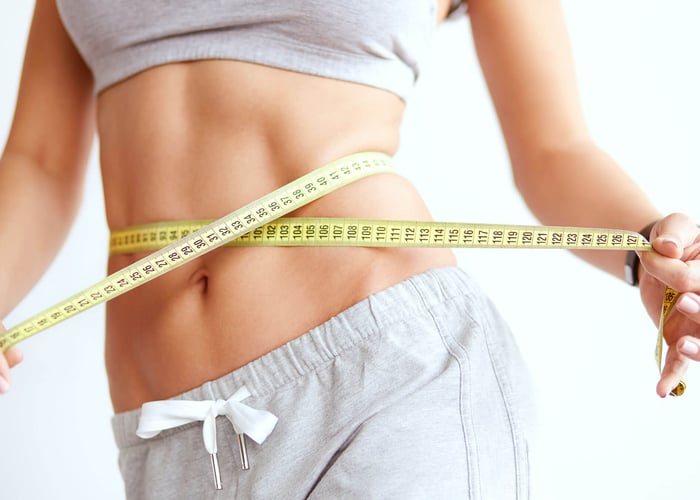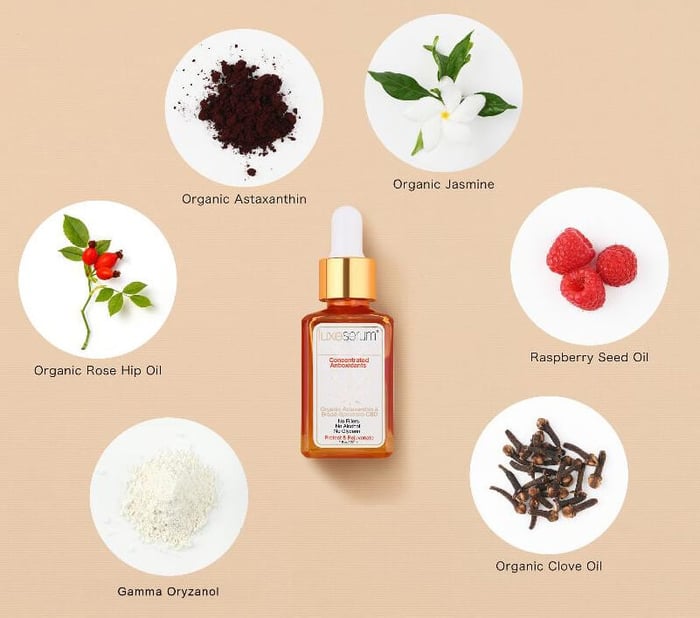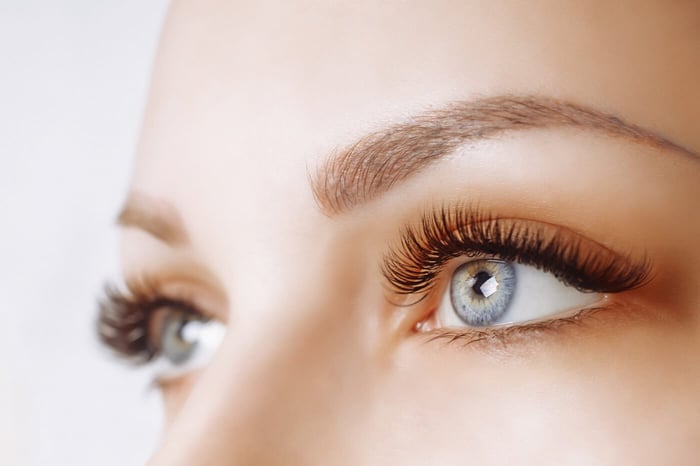Before my Mom's stage 4 cancer journey, I never thought about plastic packaging or plastic chemicals. I used to use conventional products bottled in plastic and eat nonorganic food before learning to avoid toxic products, plastic, pesticides, and harsh chemicals.
Isn't it amazing to think that there was a time before 1941 when plastic didn't exist! The only option was glass bottles! Now, everywhere we turn, we see plastic bottles!
When I started educating myself about the problems with conventional products and plastic chemicals, I learned from scientific studies that the ingredients inside many personal care products and sunscreens often include:
- Known or suspected carcinogens (chemicals that may cause cancer).
- Endocrine disruptors (chemicals that can harm your hormones).
- Even obesogens (chemicals linked to obesity).
Some of these delightful chemicals deliver a one-two, I mean one-three, punch. Just one chemical can prime your body for cancer, disrupt your hormones, and tip you into obesity simultaneously.
But that's not all. I also learned that the packaging of a beauty product itself could contain health-harming chemicals.
From the inception of Luxe Beauty, I made the complex and expensive decision to bottle the precious ingredients in custom glass bottles.
If there were a glass pump for luxe lotion, I would buy it ( the price would go up considerably though and people would complain the price is too high!).
Pumps on bottles serve a purpose to keep products away from contaminants ( from hands and air) and keep the product exposed to less oxygen.
I did a lot of research while my Mom was healing from stage four cancer, and avoiding plastic and harsh chemicals and prioritizing organic ingredients became a high priority in my life. I do my best to avoid plastic in a world flooded with plastic. My house and office are full of glass containers, glass bottles full of water, glass straws, etc.
There are many reasons to avoid plastic, and I know it is impossible to avoid ALL plastic, but we can do our best.
One significant reason that I found while researching plastics:
Plastic chemicals in packaging May lead to Weight Gain!
It turns out that plastic bottles, everything from shampoo bottles to yogurt containers, may be to blame for unwanted weight gain.
Recent findings demonstrate that endocrine-disrupting chemicals, termed “obesogens,” can promote adipogenesis and cause weight gain. This includes compounds to which the human population is exposed daily through their use in pesticides/herbicides, industrial and household products, plastics, detergents, flame retardants, and as ingredients in personal care products. Animal models and epidemiological studies have shown that a compassionate time for exposure is in utero or the neonatal period.
Researchers can induce weight gain, and even obesity, in one set of mice by exposing that set to harmful chemicals. At the same time, the non-exposed mice will not gain weight.
Animal models have shown that exposure of pregnant mice to a ubiquitous environmental contaminant, tributyltin chloride (TBT), produces heavier offspring than those not exposed [1]. Neonatal mice exposed to synthetic estrogen DES have also been reported to have increased body weight [2].
A recent scientific study from Norway showed that more than 55,000 chemicals are in plastic containers.
Fifty-five thousand!
The scientists were only able to identify 629 of them. And of those chemical compounds, 11 were already known to interfere with human metabolism.
In fact, when studied in the laboratory, these chemicals contributed to fat cell development. That's a problem, especially because chemicals in plastic packaging may not stay in the packaging. This Norwegian team of researchers showed that many chemical compounds could leach into the body.
"It's very likely that it is not the usual suspects, such as Bisphenol A, causing these metabolic disturbances. This means that other plastic chemicals besides the ones we already know could contribute to overweight and obesity," Johannes Völker, the study's first author, said in a news release. As a result of public demand for BPA-free plastics, the industry has produced various BPA relatives for use in plastics and in thermal papers. These include over 20 chemicals, such as bisphenol S (BPS), bisphenol F (BPF), bisphenol B, bisphenol E, bisphenol AF, and bisphenol Z, among others.
The paper states that daily-use plastics contain "potent mixtures" of metabolism-disrupting chemicals. The Norwegian scientists concluded that plastic can be "a relevant yet underestimated environmental factor contributing to obesity."
Many animal and epidemiological studies support the obesogenic effect of early-life exposure to EDCs. Rodent studies reported that perinatal or early postnatal exposure to BPA (66), pesticides (67), nonylphenol (68), and PFOA (69) lead to increased weight gain during adulthood in a dose- and gender-dependent manner.
A variety of chemicals have been demonstrated to be obesogenic in animal studies. These include widely used chemicals such as phthalates, bisphenols, parabens, flame retardants, and pesticides.
Hormonal disruption:
"Synthetic chemicals in products like plastics and fragrances can mimic hormones and interfere with or disrupt the delicate endocrine dance. We're exposed to these chemicals daily, and we're especially vulnerable to them during phases of accelerated development—in utero and throughout childhood."
One commonly used shatterproof plastic (PC #7) can contain bisphenol-A, commonly called BPA, and flexible vinyl (PVC #3) includes phthalates. These chemicals are known EDCs. The science varies on how much of a risk these combined exposures pose in everyday life, but recent research shows even very low-dose exposures can be significant.
Many Reasons to Love Glass!
Glass is made from all-natural, sustainable raw materials.
Glass is 100% recyclable and can be recycled endlessly without loss in quality or purity.
Glass bottles for everything, please!
Okay, I admit I buy everything in glass bottles if possible.
One of my favorite coconut yogurt products switched from glass jars to plastic! Ugh! Unfortunately, I can no longer buy their product. I know glass isn't perfect; it can break, and at times, it can be challenging to get the product out of glass bottles, especially when the product is getting low, but that's why The Spatty was created.
I think it is best to choose health over convenience. Health is wealth.
Don't Choose Aluminum
A packaging trend I am seeing to get away from plastic is aluminum. But aluminum is a known neurotoxin that has also been linked to breast cancer. Don't be duped by this fast-growing trend toward aluminum packaging or any other greenwashing.
Greenwashing is when companies falsely promote that they are "sustainable" or "environmentally friendly" when they aren't.
I recommend you read this article on the pros and cons of aluminum. It serves no known function in the human body. So, full disclosure, I don't want any aluminum in my body, and I don't think it has any pros...
Avoiding Obesogens: 6 Tips!
I know it is impossible to avoid ALL plastic, but we can do our best. It can feel a little overwhelming at first, but baby steps count.
Start making small changes, baby step by step, and the significant results you see (more energy, healthier skin, better sleep, plus a smaller number when you step on the scale) will motivate you to keep going.
1. Switch out your plastic food storage containers for glass
You've meant to do this; you haven't gotten around to it. Store leftover food in glass, which is super convenient because you can see what's inside. Or stainless steel food storage containers. These work well, but I prefer glass. I highly recommend you remove all your plastic containers from your house so you aren't tempted to use them again.
2. Ditch Normal dental floss. Conventional dental floss is made from petroleum, and the most common synthetic wax coating is for regular dental floss. My favorite healthy floss option is Dr.Tung's Smart Floss, which is made of fibers lightly coated with a vegetable/beeswax blend (contains beeswax plus one or more candelilla, carnauba, castor oil, and rice bran wax).
3. Don't use coffee and tea cups lined with plastic. Bring your own stainless steel thermos or mug.
4. Avoid saran wrap. Saran wrap, aka Plastic wrap, is "convenient," but it's also carcinogenic. And there's nothing convenient about cancer. Also, I do not buy aluminum wrap because, as I mentioned above, aluminum is a neurotoxin. Pyrex makes wonderful glass containers and glass mason jars are excellent for storing anything, so saran wrap and aluminum foil are unnecessary.
5. Keep espresso spoons in your purse or backpack
If you carry your small spoon, you'll never need to use a plastic spoon again. My friend, a mom of four, always keeps five small espresso spoons in her purse: one for each of her kids and an extra for her. That way, she and her kids always have non-toxic spoons to use, even on the run.
6. Bring a Glass water bottle with you every time you leave the house. I don’t leave my house without my Mountain Valley spring water in a glass bottle. That way I stay hydrated with high-quality spring water, and never have to buy water in a plastic bottle. I am only forced to buy water in a plastic bottle at an airport.
"Do the best you can until you know better. Then, when you know better, do better.” Maya Angelou
*The information on this website and the products on the website are not intended to diagnose, treat, or prevent any disease or to affect any structure or function of the skin or body. Medical advice for skin or otherwise much be made by consulting with a healthcare provider.
This site contains opinions, reviews, and testimonials from customers and may not represent the opinions and views of Luxe Beauty, Inc.







